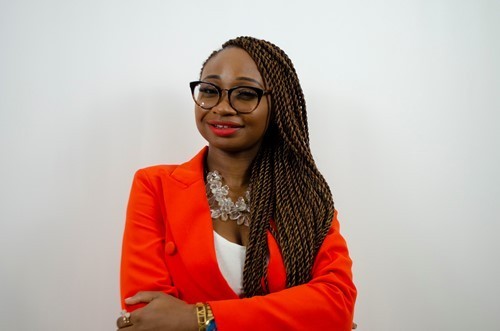A new partnership is set to transform the lives of black women across Lancashire and the North West, and inspire their entrepreneurial ambitions in the tech sector by offering fairer access to digital skills training and career opportunities.
Innovation hub HOST, the Home of Skills & Technology, operated by Lancashire business IN4.0 Group, is partnering with socio-creative organisation Niyo Enterprise, to support its expansion into the North West and empower black women into tech careers.
IN4.0 Group, a training, consultancy and digital transformation services provider, is led by Blackburn entrepreneur Mo Isap.
While 17 per cent of women work in the tech sector in the UK, only around 0.7 per cent are from a black, African, Caribbean or black British background according to BCS, The Chartered Institute for IT. Women from a BAME background are also less likely to have leadership roles in the tech sector, despite having a higher level of education than other groups.
In a bid to challenge this gender diversity disparity, HOST based at Media City, is collaborating with Niyo Enterprise to break the barriers of entry to the tech sector facing black women to create a supportive community for them to access digital skills training and secure employment in the industry.
The inclusion and support of black women will be applied across all of HOST’s Skills City academies which will include Black Codhers, a specialist software engineering bootcamp, as well as two Black Disruptor programmes, a data science and project management course for black women and an XR bootcamp focused on building 3D and immersive technology skills as a Unity developer.
There is a huge demand from black women to learn new digital skills as Niyo Network’s Black Codhers bootcamp recently received over 3,000 applications from all over the world. As a result, it has upskilled 50 black women into software developer roles in high profile companies such as Citibank and KPMG.
This collaboration is part of HOST’s Skills City, a digital technology academies bootcamp dedicated to transforming talent diversity in the North West tech sector with a commitment to fast-tracking 450 people into digital technology careers every year.
Established in 2018, it will be the first time that Birmingham-based Niyo Enterprise expands into the North West alongside its not-for-profit arm, Niyo Network, which aims to equip and train black women who are unemployed or are at risk of unemployment.
HOST is working closely with employers and the CEO and co-founder of Niyo Enterprise Oyin Adebayo, to ensure that there are learning and employment opportunities available for black women across all of its programmes.
This includes FreelanceHER 100, a ground-breaking fully funded training accelerator for women from Lancashire and Greater Manchester, working to launch and grow sustainable businesses in digital, creative, media and technology sectors.
Oyin said: “We are excited to be working with HOST and the wider Skills City co-operative to ensure that black women are part of pioneering change in the tech industry. Our major aim has always been to see as many black women as possible in high impact industries. We believe that with this partnership, black women would not just be able to dream but also create and thrive in the tech industry.”
Mo Isap, CEO of IN4.0 Group, said: “We are proud to be working with Oyin and Niyo Enterprise to offer a range of opportunities and choices to black women in Lancashire and the North West so they can be fully supported throughout their journey into tech careers. Whether they are seeking a job in the tech industry, looking to upskill in digital or aspire to be a tech entrepreneur, we want to ensure that there are opportunities available for them here at HOST and across the region.
“Supporting diversity and inclusion and removing the barriers to entry to the tech sector is at the heart of Skills City. Our ambition is to continue to support women who remain largely underrepresented in the tech community, which is why in this exciting new chapter for HOST, we have committed that 50 per cent of all our learners will be women.”























